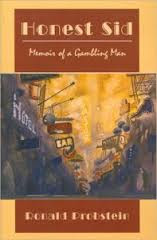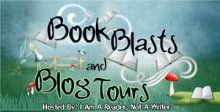Writing and Dreams. Not That Different
By Kirsten Mortensen
I
love to dream. And not just because it’s so night to get a good night’s
sleep. I love to dream because I’m utterly fascinated by the experience
of finding myself in a strange world—often occupying a strange
identity—that seems utterly complete and coherent while I’m inside it.
What a marvelous thing, consciousness is, to be able to send us into
dream worlds!
I also believe my love of dreaming is very closely related to my writing.
In
fact, I think writing—especially writing fiction—is very similar to
dreaming. You might even say that writing fiction is a kind of
controlled, waking dream.
Think about it.
When
you dream, you relax. You turn your attention from everyday life. And
you let another part of your mind—one that exists independently of the
mind where you live while you’re awake—take over. It creates characters,
settings, plots, story lines. Things “happen” that cause you to react
emotionally. Problems present themselves—and so do solutions.
Now
think what happens when you write fiction. You relax your waking mind,
and turn your attention away from everyday life. You let another part of
your mind take over. And it starts creating characters, setting, plot
twists . . .
With me so far?
Now how
about this: suppose that paying attention to your dreams helps you to
build bridges between the part of your mind you use to create fiction,
and your waking consciousness—the part of your mind you need to capture
what you’ve created and write it down.
Isn’t that an intriguing thought?
I
know that I’ve been paying close attention to dreams my whole life, and
during many periods of my life I’ve kept dream journals. And something
else: there are times—especially when I’ve been getting enough
sleep—when I’m able to consciously control my dreams. Sometimes I
realize I’m dreaming (an experience known as “lucid dreaming”). Other
times, I feel like I’m a movie director. If I don’t like what’s
happening, I’ll change it.
As I’ve gotten older, I’ve
come to believe that this practice has helped me as a writer. It’s very
subtle, but I can feel it when my mind “switches” to a different mode,
the mode where I’m generating fictional characters, fictional worlds.
I
believe there’s a connection. Scientists know today that when we
practice any task—whether its navigating city streets, doing Sudoku
puzzles, or memorizing poetry—our brains become better at that task.
I’ve written about this topic at length in a non-fiction book I published, called Writing, Dreams, and Consciousness.
And
I believe that the work I’ve done as a dreamer is one reason that the
world I created in my latest novel, Dark Chemistry, is so vivid that
readers tell me it makes a strong impression on them. That world really
does exist—I know. I’ve dreamt it!
So here’s my
proposal: paying attention to dreams—keeping a dream journal, for
example, and writing down what we can remember of our dreams when we
wake in the morning—is a way of training our brains to create fictional
worlds.
What do you think? Do you remember your dreams? Have you ever kept a dream journal?
And if you decide to try, to see if it helps you develop a writer, please let me know. I’d love to hear about your experience.

A woman's worst nightmare
Drugged by something...that makes her think she's fallen in love.
All Haley Dubose has ever known is beaches and malls, clubs and cocktail dresses.
But now her father is dead.
And if she wants to inherit her father's fortune, she has to leave sunny Southern California
for a backwater little town near Syracuse, New York. She has to run RMB, the multimillion dollar
chemical company her father founded. And she has to run it well.
Keep
RMB on track, and she'll be rich. Grow it, and she'll be even richer.
But mess it up, and her inheritance will shrink away before she gets a
chance to spend a dime.
Donavon Todde is her true love. But is it too late?
He's RMB's head of sales – and the more Donavon sees of Haley, the more he's smitten.
Sure,
she comes across at first as naïve and superficial. But Donavon knew
Haley's father. He can see the man's better qualities stirring to life
in her eyes. And Donavon senses something else: Haley's father left her a
legacy more important than money. He left her the chance to discover
her true self.
Donavon has demons of his own.
He's
reeling from a heartbreak that's taking far too long to heal. But he's
captivated by this blond Californian, and not only because of her
beauty. It's chemistry. They're right for each other. But has
Donavon waited too long to woo this woman of his dreams? Because to his
horror, his beautiful Haley falls under another spell. Gerad's spell.
A web of evil.
Gerad
Picket was second-in-command at RMB when Haley's father was alive. And
with Haley on the scene, he's in charge of her training. But there are
things about RMB that Gerad doesn't want Haley to know.
And he must control her. Any way he can.
Romantic suspense for your Kindle
Will Haley realize that her feelings are not her TRUE feelings?
Does Donavon have the strength left to fight for the woman he loves?
Will the two of them uncover Gerad's plot to use RMB pheromones to enslave the world?
And even if they do – can they stop it?
Genre – Romantic suspense
Rating – PG-13
























